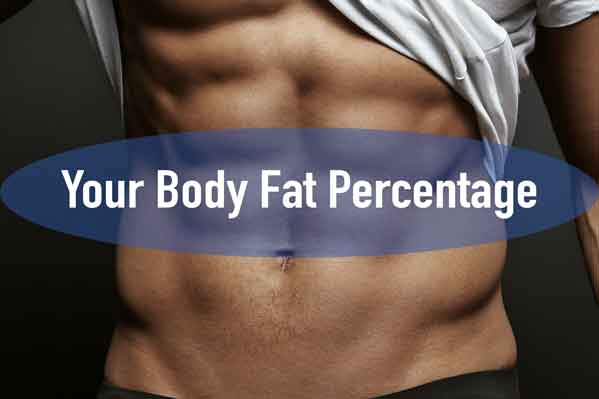2 Battles, 1 Outcome: My Eating Disorders Taught Me a Precious Lesson
Born overweight, my family was so excited and happy to tickle that “bulky” tummy and kiss those cute, chubby cheeks. When I understood nothing, it definitely was funny. However, everything changed when I first went to school. That was the time I realized that I was bigger than my classmates. But the real struggle began in my secondary school. That was the time when I first started to starve myself in order to look skinnier.
Anorexia isn't a modern disorder
I went through the periods when I had a glass of water or a piece of bread to drop those pounds fast. I refused to eat and I was literally afraid of food. That led to my first eating disorder – anorexia. This insidious illness began as a desperate effort at control but gradually transformed into a full-time, full-fledged affliction. I was highly depressed and anorexic for years on end. Everyone in the family kept telling me how thin I was and my parents were desperately trying to make me eat at least something.
Despite my eating issues, I secretly added extreme workouts on top of it. I exercised hard on a tiny amount of food and believed I was on the right track. My eating disorder was getting so horrible that I couldn't even keep myself warm.
The voice in my head seemed to never stop. Each calorie was a fierce battle, and although I understood I must eat to survive, I gave in to the voice that told me to stay away from food.
One day, I woke up in the hospital without realizing where I was. My eyes were too bleary to see the bare white walls, my mom's eyes filled with tears, and the doctor wearing the white coat and standing to my left. The heart monitor was beeping out slowly beside me and I saw an IV in my arm. It turned out, I fainted in my room while I was doing my homework.
I stayed in the hospital for more than two months. During that time, I was taught to have 5 to 6 nutritious meals a day. But since my body was highly frail, I could only consume liquid food. It took me a few weeks to learn how to have solid food and desserts. After those excruciating months, I was sure I was ready to go home. Unfortunately, I wasn’t.
My parents worked full time and they didn't have an opportunity to control my eating habits. There would be times that I went the whole day without eating anything and when I lost 6 pounds and my appetite, my mom had to quit her job and stay with me all the time. The recovery process was harsh and my constant tantrums were unbearable. My mom didn't give up on me, though. Thanks to her patience and persistence, I actually, we won the battle.
Now, that I'm in my late twenties, I start realizing that anorexia was a necessary lesson to me. The most critical lesson I learned from my eating disorder is that everything comes down to what was going on inside my head. It wasn't about my physique or weight. It was all about the negativity that was thriving in my head.
Whether you're suffering from anorexia or anyone you love, here's what I'd like you to know from my personal experience:
Genes don't cause anorexia
Most people, especially my grandparents, blamed my parents for my eating disorder. My mom blamed herself as well. Of course, as a parent, you're responsible for your child's health. However, If you’re the parent of a child suffering from anorexia, I want you to read the next sentences extra careful.
Anorexia is an eating disorder triggered by a complex interaction of numerous influences. Even though a genetic element plays some role, genes aren't to blame. As a recovered sufferer, I can't keep silent when people blame parents for giving their children anorexia via influence or attitude. It's absolutely unfair. While there's a tiny part of parents' fault, there's another reason that many researchers are trying to find out these days.
We want look healthy
There's a popular belief that people start suffering from anorexia when they want to look skinny. However, there's a fine line between looking slim and healthy and skinny and unhealthy. It's hard to confess but I hated the way I looked during my recovery process. I looked like death. I was even afraid to look at myself in the mirror. Each time I took a quick glimpse of myself in the bathroom mirror, I tears came into my eyes. I wanted to look healthy. I wanted to put on pounds. When the meal time came though, the fear made me forget about my desires.
It's possible to recover and live a healthy life after anorexia
Eating disorders, including anorexia, have the highest mortality rate of all mental illnesses. As a recovered sufferer, I can confidently say that you can live a healthy life after struggling with an eating disorder. There are two important things that can speed up a successful recovery a strong desire to recover and a strong support.
Bulimia can hit even those who don't strive to drop weight
Since my school years, I didn't remember having any serious issues with the foods until I entered the college. I experienced the first symptoms of bulimia in a few months of hard learning and constant parties. Honestly, I had no idea that I was developing a new eating disorder. It's all started when my college friends and I were ringing in the New Year. We threw a fantastic party with plenty of food.
I gulped so much treats and meals with enthusiasm and fun I believed that I literally couldn't stop myself from eating. I devoured everything I saw until my belly ached. As soon as I felt a horrible discomfort and pain in my stomach, I ran like a crazy to the bathroom. I stood over the sink, sliding my fingers down the throat, and quickly relieved the pain. I thought it was okay because everyone experienced nausea that day.
Such after meal bathroom trips occurred at least twice a day a long time after that New Year's bash. I desperately tried to hide my “trips” from my roommates and each time I promised myself that I'd never eat till my stomach ache again. But once I began to eat, I failed to stop. I knew something was wrong with me and one of my roommates proved it by a story of her sister's eating disorder. She caught me vomiting in the bathroom after we had a dinner and confessed that she had been watching me for a week.
Just in case you don't know, bulimia is one of the most dangerous eating disorders, which is similar to binging, but as opposed to a binge-eating disorder, bulimia is followed by purging usually vomiting. People suffering from bulimia can be both overweight and underweight. I had a normal weight at that time. I didn't strive to look slim and I was actually comfortable with my body image. Chronic fatigue, complicated relationship with food (thanks, anorexia), and daily stress played their role.
My bulimia symptoms, such as abnormal bowel functioning, uncontrolled eating, and muscle cramps, symptoms were growing day by day. I didn't seek medical help at first. But when I fainted during the class, I opened my eyes to see that I was in the hospital. That moment, I immediately remember my anorexia and its painful recovery process.
Three doctors yea, my mom was shocked and so she tried to involve as many experts as possible to save my life confirmed my diagnosis of bulimia with the several factors:
1. Anemia
2. Excessive and compulsive eating BED (binge eating disorder)
3. Uncontrolled purging after each meal and bingeing after purging
4. Chronic fatigue and insomnia
5. Anxiety and panic attacks related to food ingestion
Unlike anorexia, my bulimia recovery included portion control, mindful eating, meal planning, and self-love. Of course, I had to take some medications and supplements to boost my immunity and reduce the harsh side effects of bulimia.
While anorexia taught me to stop dreading food, bulimia taught me to:
Plan my meals
My mom had to hire a professional nutritionist to help me learn how to eat my way to a healthier me. I learned how to correctly plan my daily, then weekly, and finally monthly meals and how to grocery shop and cook to meet that eating plan. From my personal experience, I can tell that it's almost impossible to fight your bulimia habits without professional help.
Eat mindfully
In other words, eat slowly, enjoy the food, and never eat when you're not hungry. I remember wolfing down 5 portions of meals or snacks in several minutes before I went to the bathroom to purge it. Overeating is often the result of eating quickly. But it was a real challenge for me to learn how to eat slowly.
As you probably know, the brain and stomach catch the signals of fullness after about 20 minutes. Mindful eating allows catching those signals and plugging into the satiety cues of the body, providing it with enough time to figure out that it's full.
Nowadays, I don't simply chow down my meals. I enjoy every second of eating process. I love to see how my food smells and tastes. I chew mindfully, finding out the taste of every ingredient in the snack or meal. I always take a break after each 3 spoons to give myself enough room to feel nourished and filled up.
Control portions
I had to learn how to control the amount of food I was putting in my body. I learned the way to size up my servings so that they're healthy and didn't cause stomach ache. I invested into a set of measuring spoons and swapped my oversized plate for a smaller one to make myself think I'm eating a lot of food.
The final word
Recovery from any eating disorder be it anorexia or bulimia takes time and it should be a daily practice. It's critical to stay patient, seek medical help, and never give up. Through my experiences, I've learned to eat better, feel healthier, and live happier. I finally learned to see my beauty from inside out.
I shared my deeply personal stuff to let you know that you're not alone. I want you to understand how dark some periods of my life were and how much I overcame to be where I'm right now. I hope my story will inspire you to develop healthy eating habits or stay stronger on your way to a full recovery.
So many people with some past eating disorder issues fall down and get back to where they started. The slope is really slippery, and, sometimes relapse can be inevitable. The crucial thing that helps me to stay on track is that I’m well aware of the time I slip, and I'm always ready to stand up each time I fall down. After two eating disorders, I don’t want to experience another rock bottom. I know that the next time I may not be willing to recover.
Whether I want it or not, my eating disorders seriously affected my well-being, but I learned my lesson. Altering my outlook has led me to finally find myself having a dinner with my family and eat a healthy portion of food without any food fears and purging after eating.
My eating disorders have taught me to be more mindful when it comes to food and fuel my body with healthy meals that will hopefully help me restore at least the tiny part of my health. I've tried dozens of eating plans before I found out that a vegetarian eating plan is highly helpful in boosting the overall health. I can't tell you that I have a perfect relationship with food these days. But I feel so much energized, healthier, and more content of my life that I'm grateful for those two battles and all people who helped me to receive one positive outcome.



